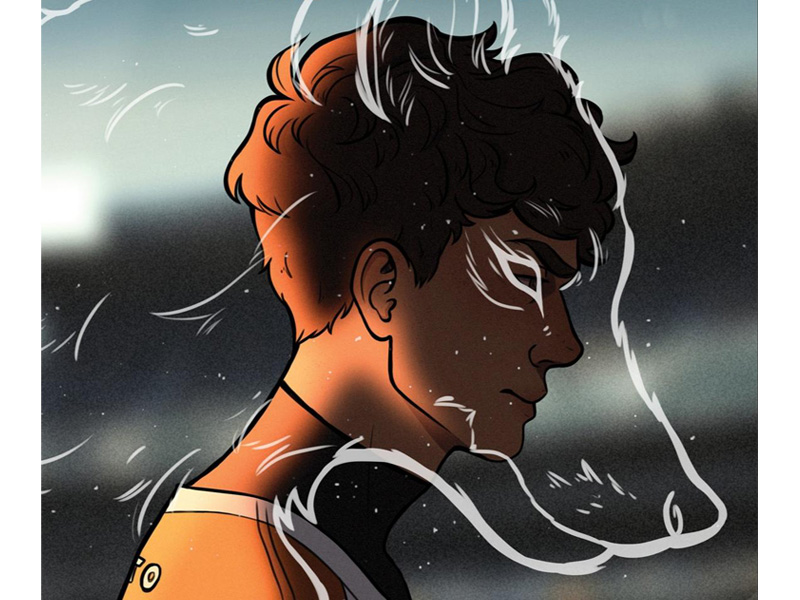
It’s astounding—that willingness to give a game your all when you’ve already lost at life. Criminals on the run are usually not prepared to believe in themselves and fulfill their potential. It’s even less often that they get that chance, especially if they’re teenagers.

Neil Josten, the protagonist of Nora Sakavic’s The Foxhole Court: All for the Game [most recent English edition: CreateSpace Independent Publishing Platform, 2016. ISBN 9781516801510], has long been in hiding, running from the people who killed his mother. He changes cities, passports, his appearance, and his clothing—all but his behavior. He’s still a quiet young man who doesn’t stand out. It’s hard to remember who you really are when you have to suppress your true feelings and desires. You can’t help but start to see the same in others, even in people who are pretending not out of a need to survive, but a simple desire to fit in. Neil’s outsize distrust of people is easy to justify when you read about his life and the mistakes he’s resolved never to repeat. The author gradually reveals his story to us, and by the end of the first book you can’t really say if you actually know enough to understand who he is, this person who calls himself Neil Josten.
The only thing which ties our hero to his past life is Exy, a violent sport invented by the author. The violence of the game helps Neil come to terms with the cruelty of life. When he plays he can let go of the hurt and act rather than think. That’s why his chance to play for the Foxes, a team of dysfunctional teenagers, first seems like a trap. His mistrust of the opportunity threatens to kill the opportunity itself. People who have lost everything they’ve known or believed in are rarely able to unite against a common enemy and not become enemies to each other.
Suddenly the book fills with characters, who seem very much alike in the reasons that bring them to a common playing field. Broken, but itching to take out their anger at the world through the game, they really seem like wild animals. You get used to them and learn to tell them apart, sensing how hard it is for them to find a way to play together.
The difficulties and troubles that would seem minor to normal teenagers are serious problems for the Foxes, who, along with their reputation, have lost their freedom, the ability to speak out without thinking, and to look to the future without recalling past mistakes. It’s hard to move forward when you’re always expecting past misfortune to repeat itself.
Compared to other books of urban fantasy, this is a truly powerful story. What matters here isn’t the setting or the fictional elements, but the people. Complex, inscrutable, reviled and mean, at the end of the day, they’re still people and they reveal themselves not just to the protagonist but also to themselves. The Fox is a fitting symbol, since these animals rarely form a pack (a skulk) even for hunting. But the Foxhole players are already prey, so for a time they come together to form a skulk of humans.
Darya Ponomaryova, 18
Translated from the Russian by Alisa Cherkasova
Book cover image: goodreads.com
Follow us on Facebook.
